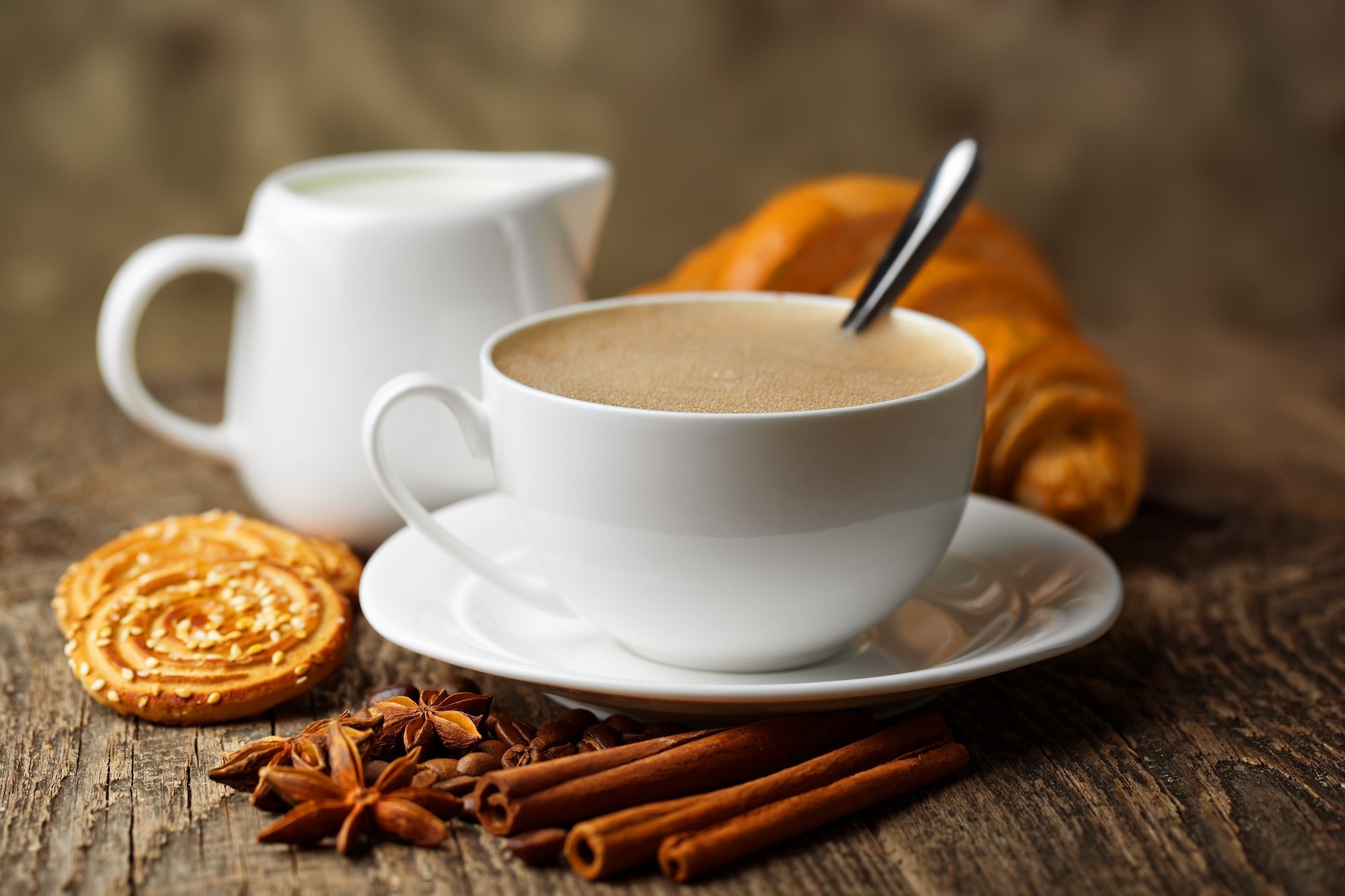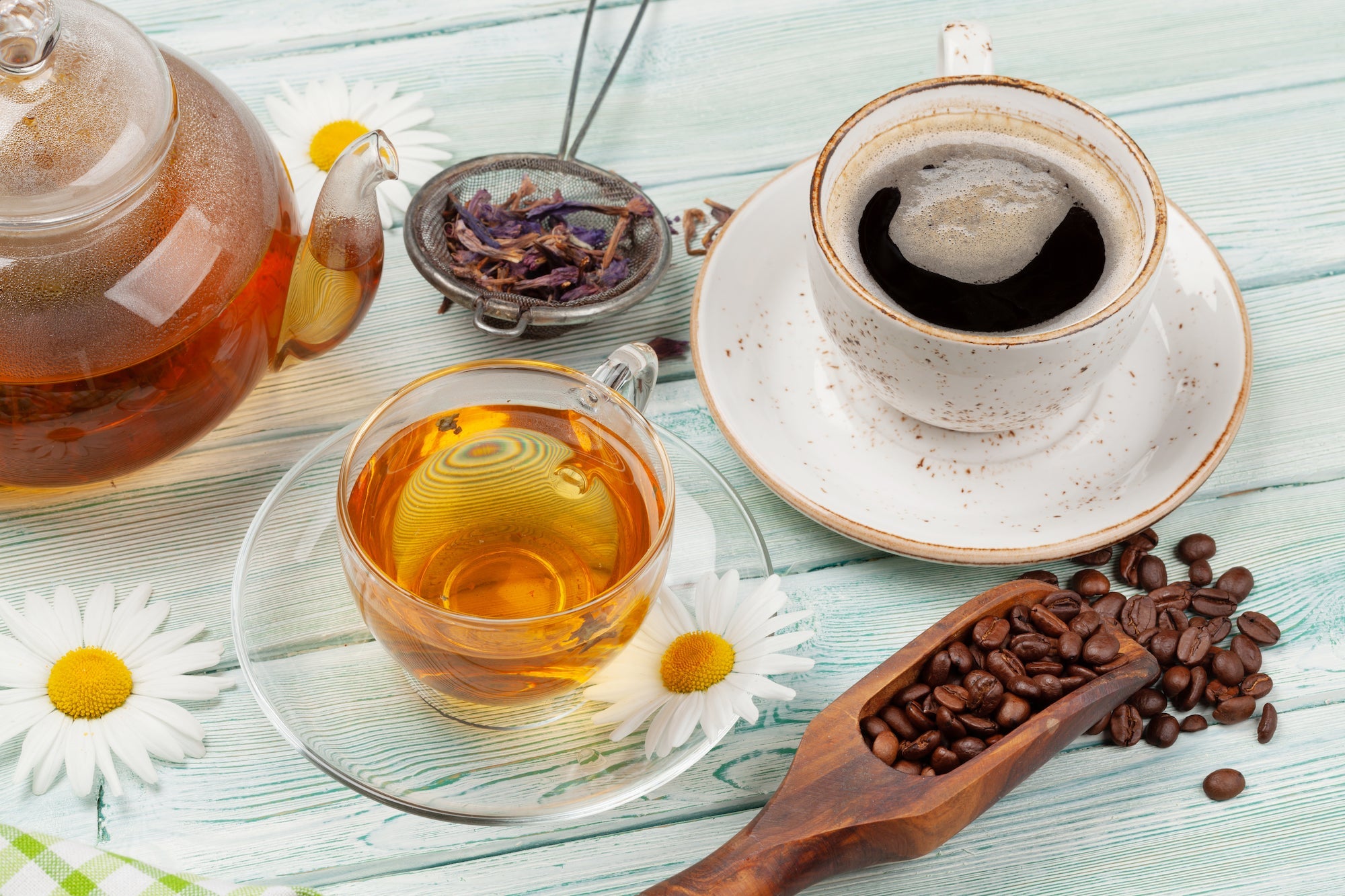Does it really matter where your coffee comes from? Only if you care about the flavor and sustainability of your cup of Joe.
Coffee’s grown in over 70 countries in the “Bean Belt,” which includes parts of Asia, Africa, and Central and South America. They have the tropical climate and altitude required for coffee trees to thrive.
Brazilian coffee? Now that’s in a league of its own.
As the world’s largest coffee producer, Brazil is a powerful player in the global coffee industry.[*] Its diverse growing regions and eco-conscious farming practices combine to produce a distinctly delicious, healthier brew for you and the planet.
So let’s explore why it deserves its own fan club (and you should be a member).
What Makes Brazilian Coffee Different?
Brazil produces a third of the world’s coffee and exports most of the planet’s espresso beans.[*] What makes Brazil’s coffee so in demand and heads and shoulders above the rest?
Its Diverse Growing Regions Produce Better Coffee Beans
Altitude significantly influences the flavor of coffee beans. Other factors, such as climate, rainfall, soil quality, temperature fluctuations, and even local microclimates, also affect taste and bean quality.
Arabica coffee beans make up 80% of the coffee in Brazil.[*] These beans enjoy higher altitudes (between 2,000 and 6,000 feet above sea level), where the coffee cherries mature more slowly. This results in a more complex, nuanced, and tasty flavor profile with bright acidity notes.
The other 20% is Robusta coffee, which prefers lower altitudes. These beans have a bolder, slightly bitter taste. That’s why they’re less commonly used in gourmet coffee blends.
The lush hillsides of Minas Gerais range in altitudes, creating a wide mix of coffee farms from just above sea level to well over 4,000 feet. As the largest coffee-growing state in Brazil, it accounts for nearly 50% of the country’s production. It’s also a major source of Brazilian specialty coffee.[*]
Sustainable Farming Practices Make It Better for You & the Planet
With coffee production contributing so significantly to the nation’s economy, it’s no surprise that laws and regulations govern every step of the coffee production process.
Luckily, it means Brazilian coffee isn’t just some of the highest-quality coffee but maybe even one of the most sustainable foods.
Their environmentally responsible farming practices include:
- Shade-grown cultivation. Rather than razing rainforests, many Brazilian coffee farms grow their beans under a canopy of trees. The coffee grows best here and provides a habitat for native wildlife and flora to flourish. This increases biodiversity, promotes better soil quality, and helps reduce the need for harmful chemical pesticides and herbicides.
- “Dry processing.” Also known as “natural processing,” Brazilian coffee cherries are allowed to dry naturally in the sun before the beans are extracted. This eco-friendly method conserves water and imparts unique flavors.
So choosing Brazilian coffee is a vote for eco-friendly foods and a healthier planet in every sip.
Its Distinct Flavor Profile, Smooth Body, & Low Acidity
What affects Brazilian coffee’s flavor?
- Diverse coffee bean varieties and growing regions. Coffee from Sul de Minas has different flavor profiles than Matas de Minas or Espírito Santo beans. So your Brazilian java may have nutty notes, subtle floral hints, sweet honey aromas, deep bourbon flavors, and other tastes to surprise and delight your palate.
- Dry processing results in more full-bodied coffee with fruity, wine-like notes.
- The roasting process. While light roasts highlight the coffee’s naturally sweet characteristics, a medium roast or darker introduces smokier chocolate traces.
- Acidity. Brazil’s naturally low-acidity coffee makes a gentle, palatable brew that’s highly approachable for coffee drinkers of all levels and preferences.
All those reasons give Brazilian coffee beans the green light, whether you choose to enjoy it in a French press, espresso, cold brew, or vegan coffee treat.
Balanced Caffeine Levels = Jitter-Free Energy
The caffeine in your cup of Joe is one of the primary reasons coffee is so good for your brain. It helps you focus and counteracts fatigue in the short term. It’s also loaded with antioxidants to protect your brain health long-term.[*]
Brazilian coffee isn’t as robust in caffeine as some African roast coffees, nor as mellow as Colombian or other Central and South American varieties.
Its moderate caffeine level offers a gentle energy boost to kick-start your mornings and provide a pick-me-up during afternoon slumps. You’ll score sustained energy without the jitters or crashes associated with higher caffeine cups of coffee.
🧠 Here’s What You Need To Know About Caffeine’s Brain Effects
Say Olá To IQJOE: The Best Brazilian Instant Coffee
Is instant coffee bad for you? Not when it’s made with high-quality Brazilian coffee, nootropics to enhance your mental performance, and adaptogens that supply chill vibes.
IQJOE is adaptogenic coffee that fires up your brain and body. Each travel-ready, vegan, keto-friendly, gluten-free, sugar-free packet contains:
- Premium, Dark-Roast Brazilian Coffee. It’s all the benefits we discussed today, minus the work of brewing from whole bean or ground coffee.
- 200 mg Natural, Organic Caffeine for long-lasting, jitter-free energy.
- 750 mg Magtein®️ (Magnesium L-Threonate) to raise your mood, mental clarity, and concentration.
- 250 mg 8X-Concentrated Lion’s Mane Extract. This adaptogen naturally lowers stress, enhances productivity, and supports optimal mental health.
You could always learn Portuguese to source single-origin coffee directly from Brazilian farmers. Or you could add a packet of our instant coffee to hot water, stir, and elevate your coffee ritual in less than two minutes.
🇧🇷 Try Brazilian coffee the easy way with our lineup of IQJOE flavors: Original Black, Vanilla Spice, Toasted Hazelnut & Caffè Mocha.
Brewing for a Better Planet
A simple mug of Brazilian coffee has the power to make a positive impact in the pursuit of a better world and a healthier you — especially when you add adaptogens like Lion’s Mane to the mix. Each cup becomes a journey of flavor, a commitment to sustainable living, and a jolt of positive energy.
So let’s support a brighter future, one delicious brew at a time.
☕ Ready to find your Brazilian coffee bliss? Tour the tasting notes in every flavor with the IQJOE Variety Pack!
Written by Lauren Ciccarelli, a writer and research geek passionate about low-carb nutrition, mental health, and meditation. Her 2,500+ articles empower doers with science-backed tips for leveled-up living.


